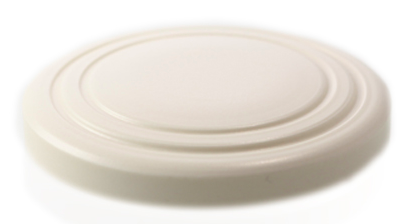To satisfy my scientific curiosity, a simple, crude, experiment to determine the activities of cultures from commercial brand of kefir vs BBH homemade kefir? I am using Greek yogurt (Peach Flavored) and milk kefir (2%, pomegranate flavored) (Names are hidden for privacy issues). You are encouraged to do your own testing to confirm my findings. The result is repeatable in my kitchen.
Bottom Line: Home made kefir is 4-10x more active than the commercial kefir.
Procedure:
1. Add 1 teaspoon of the cultured material from the store bought containers or freshly homemade kefir to 1/2 cup of organic whole milk (Trader Joe's brand). Mix well. (I could not find 3 jars of the exact same size).
2. Cap lid loosely and let it sit in room temperature.
3. Take a picture of the culture about every 24 hrs.
Day 0
 |
 |
 |
| BBH Milk Kefir | Store Greek Yogurt (Peach) | Store Milk Kefir (Pomegranate) |
I should have used plain Greek Yogurt and plain milk kefir. But as you will see later in passage 2 & 3, it would not significant change the results.
Passage 1, Day 1 - Images taken at ~24 hours, home kefir has cultured the milk nicely forming a solid mass. Greek yogurt and store bought milk kefir did not fully fermented the milk yet.
 |
 |
 |
| BBH Milk Kefir - Milk is fully fermented |
Store Greek Yogurt - Milk is not fully fermented |
Store Milk Kefir - Milk is not fully fermented |
Day 2: Images taken at ~46 hr. Greek yogurt culture is fermented. Homemade kefir is starting to seprate into curds and whey.
 |
 |
 |
| BBH Milk Kefir - Culture started to separate |
Store Greek Yogurt - Milk just fully cultured |
Store Milk Kefir - Milk is not cultured |
So far, home-made milk kefir is stacking up pretty good. Greek yogurt is about half as good.
Day 3 - Did not record exact time
 |
 |
 |
| BBH Milk Kefir - Separation | Store Greek Yogurt - Whey Pockets | Store Milk Kefir - Not Cultured yet |
I cannot tell if the store brand of kefir finished culturing on Day 3 or not. So I let it go another day. I have noticed that there's thin layer of mold growing on the surface. The culture smell foul which is not detected in the other two cultures.
Day 4 - Culture complete
 |
 |
 |
| BBH MK - Completed | Greek Yogurt - More whey pockets | Store Milk Kefir - Completed, foul odor |
Commercial Kefir was finally cultured on Day 4. It definitely smells foul. I can see a thin layer of mold on top.
Passage 2 - Mix up well the completed cultures above and remove 1 tsp to culture 1/2 cups of organic milk as before.
Wash and sanitize the same culturing vessels.
Cultures & Innoculants
 |
 |
 |
 |
 |
 |
Passage 2, Day 2 1/2 - Sorry I was too busy and did not get a chance to take images sooner. I suspect that BBH & Greek Yogurt were completed in Day 1, but no image to verify that statement.
 |
 |
 |
| BBH Kefir - done | Greek Yogurt - done | Commercial Kefir - not done |
At this point, I believe the number of microorganisms from BBH milk kefir and Greek Yogurt are similar. The Commercial milk kefir still trying to catch up. It is very close to be done.
Day 4
 |
 |
 |
| BBH Milk Kefir | Store Greek Yogurt | Store Milk Kefir - no foul smell |
The good bacteria in the Store MK has overcome the bad fungus or bacteria in the culture and no longer smell foul. :-) There's more liquid on top of the solidified culture than the others. But all of them are fully cultured by Day 4.
Passage 3, Day 0
 |
 |
 |
| BBH Innoculant | Store Greek Yogurt Innoculant | Store Milk Kefir Innoculant |
Passage 3, Day 1
 |
 |
 |
| BBH - Completed | Store Greek Yogurt - Completed | Store Milk Kefir - Incomplete |
It's surprising even by the 3rd passage, the number of micro-organisms from the Store Milk Kefir is not sufficient enough to culture the milk in 24 hr.
By Day 2 or 3 - all milk have been cultured completely. No images taken. Experiment completed.
Conclusion:
Home made milk kefir definitely provides the most abundant active probiotics compared to the commercially available products.Greek yogurt provided more active culture than the store bought kefir.











